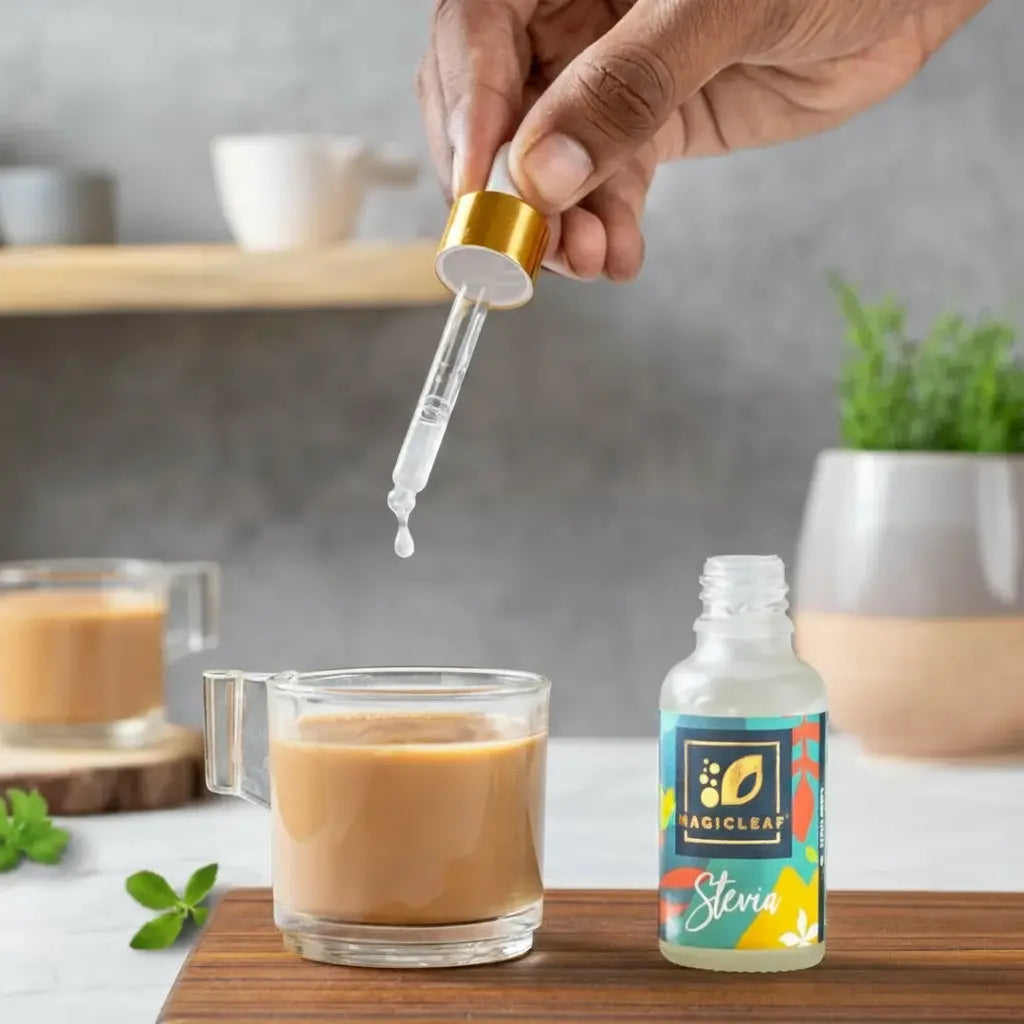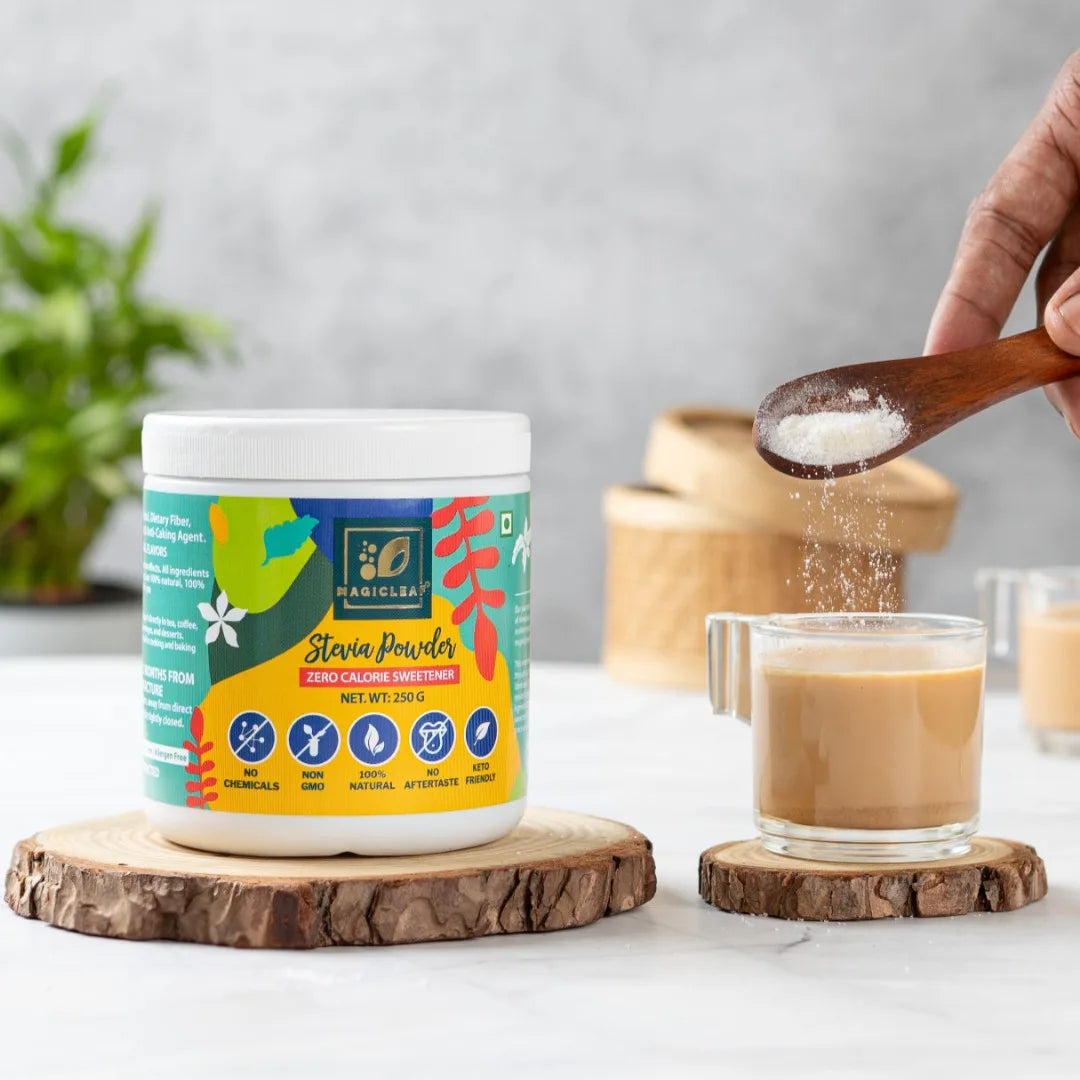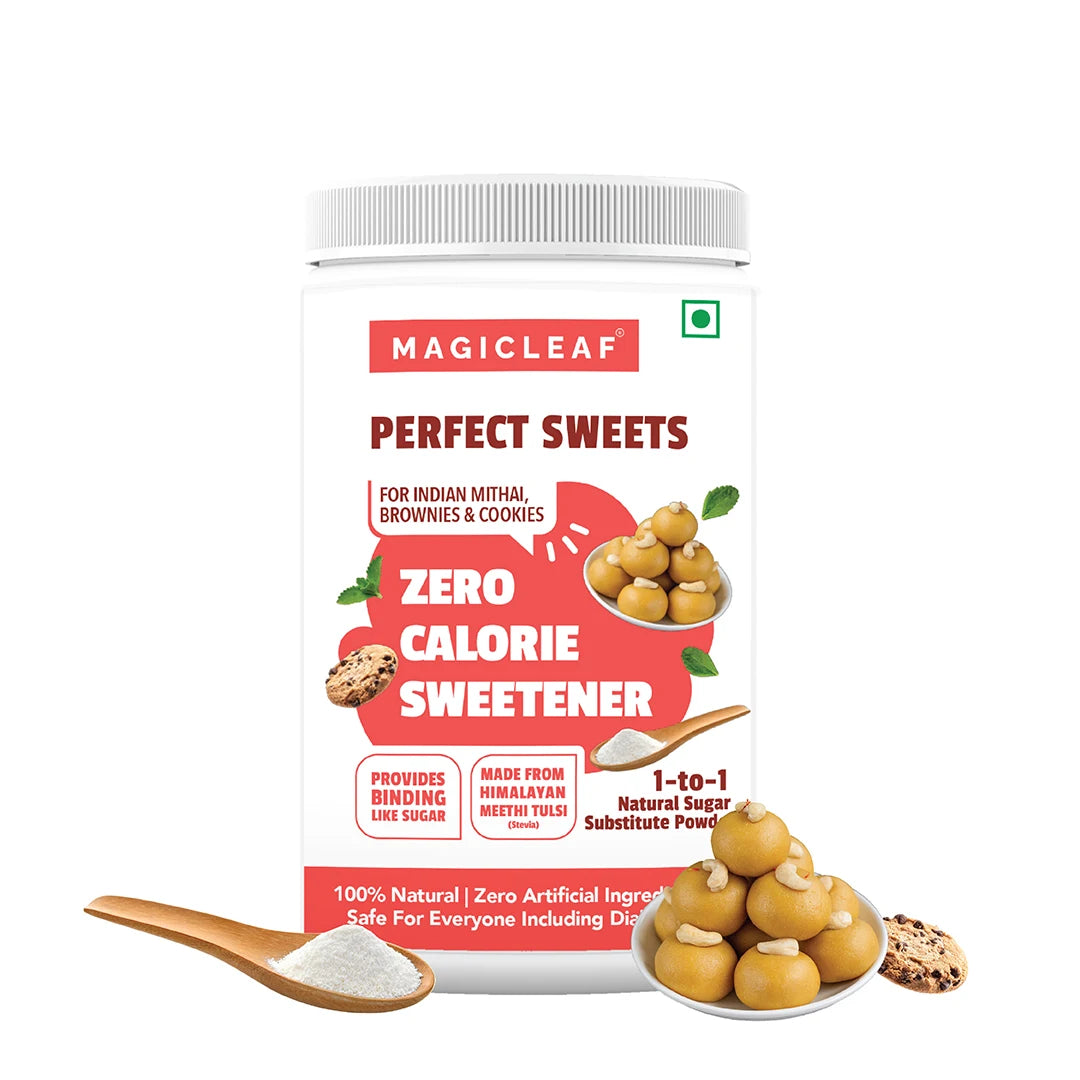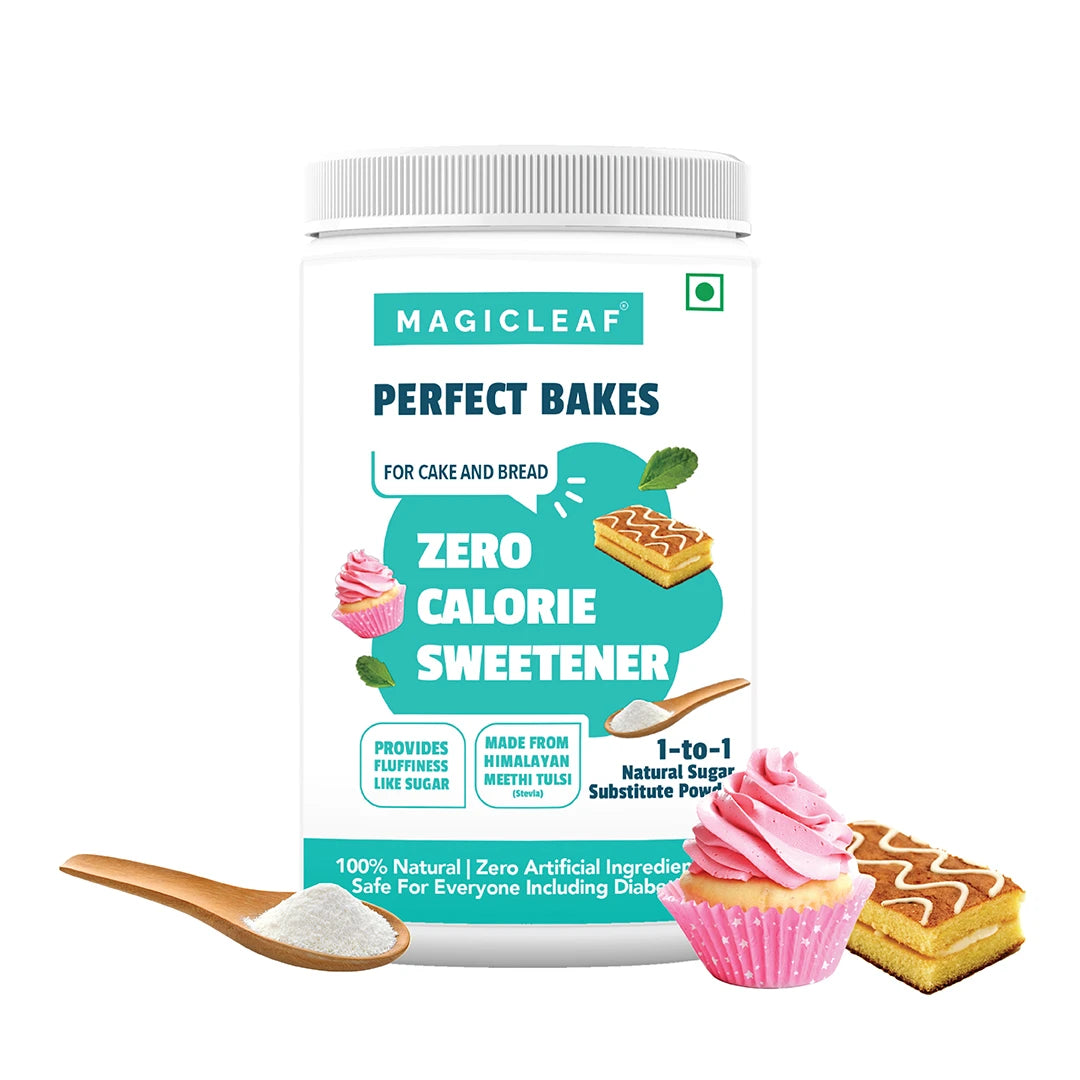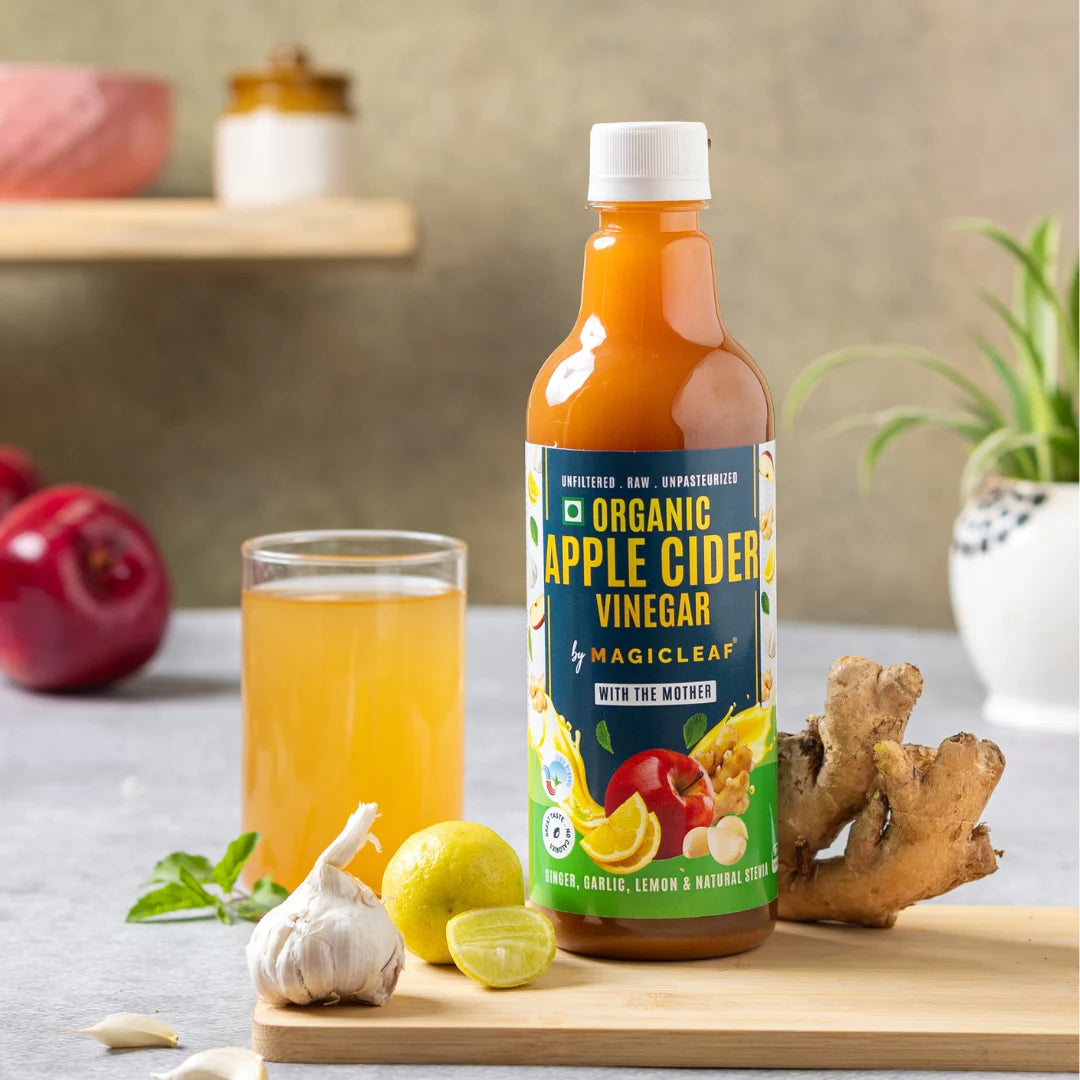Acesulfame potassium or acesulfame-k is one of the most well-known artificial sweeteners in the market. It is also referred to as E950 in European countries. Ace-K is made in labs from chemical reactions among sulfamic acid, diketene, triethylamine, acetic acid, sulfur trioxide and potassium hydroxide. This combination forms a highly stable crystalline form of the sweetener. It is not considered natural, as the process of making involves chemical synthesis. The chemical properties of Ace-K are similar to that of Saccharin, another controversial yet popular artificial sweetener. Both the sweeteners share physical and chemical properties.
Acesulfame-K is a calorie-free sweetener that is about 200 times sweeter than sugar. It is not broken down by the body like other food items. Instead, the body absorbs it and then lets it pass through urine.
Food Items Containing Acesulfame Potassium:
Acesulfame-K is a commonly-used ingredient in low-calorie and sugar-free labelled food and beverage products. Many brands like Red Bull, Coca Cola Diet Coke, and Monster have been using the ingredient with other sweeteners like sucralose and aspartame.
Other common examples of food and drinks containing acesulfame-k are:
- Tabletop Sweeteners
- Chewing Gum
- Non-Carbonated Drinks
- Ice Cream
- Desserts
- Toothpaste and Mouthwash
- Salad Dressings and Sauces
- Sugar-Free Jellies and Jams
- Syrups
Is Acesulfame Potassium Safe?
The journey of Ace-K’s approval as a sweetener is highly controversial. The testing on the use of the artificial sweetener began in the 1970s. The reports of these tests suggested that the ingredient is not completely safe. Later, the safety tests were themselves deemed to have several shortcomings.
In 1996, the Center for Science in the Public Interest (CSPI) asked the Food and Drug Administration to test the safety again before approving the sweetener. However, the FDA approved Ace-K in 1998 on the basis of previous studies. Later, European Food and Safety Authority, and Food Safety and Standards Authority of India also approved the artificial sweetener as a food additive.
However, the CSPI and several other agencies still have questions surrounding the safety profile of Ace-K. The concerns are around several health issues like cancer, headaches, and disruption of metabolic processes. So, let’s discuss them in detail.
Dangers of Acesulfame Potassium:
Being an artificial ingredient, acesulfame potassium has been challenged by several scientists and agencies, calling for proper studies on the effects of its intake. There are several studies on acesulfame-k highlighting the health issues it can cause.
Ace-K contains a chemical named the carcinogen methylene chloride. It is used as a solvent in the manufacturing process of Ace-K. According to studies, the compound is carcinogenic and long-term exposure can lead to several health hazards, like cancer, headaches, nausea, mental confusion, liver effects, kidney effects, and even visual disturbances.
Another study also proves that long-term consumption of Ace-K can disrupt the metabolic process. This can further lead to several issues like appetite regulation, changes in the blood sugar level, and increased body weight.
Additionally, studies have also shown an impact of Ace-K on pregnant women. Reports suggest that acesulfame-k can affect the early development of babies during pregnancy and can even lead to premature births.
What Can You Do?
Well, the first and foremost thing is to avoid the products containing Ace-K. You can identify the sweetener by reading nutrition information on the products. As it is commonly found in low-calorie or sugar-free products, you can always check the product before purchasing.
It is better to switch to a natural, chemical-free sweetener. The best option is Stevia, which is a 100% natural sweetener obtained from a plant called Stevia rebaudiana. It is safe for everyone’s consumption, including pregnant women, diabetes patients, and kids.
Check out 100% Natural & Safe Sweeteners made from Himalayan Stevia Leaves


